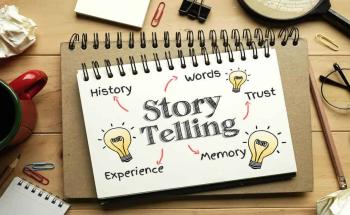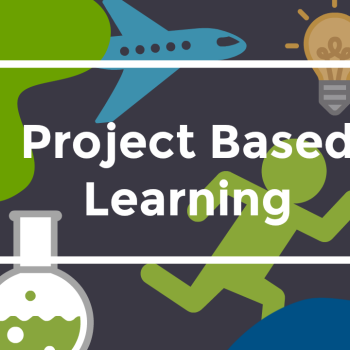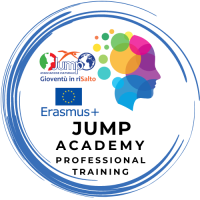
SPECIAL NEEDS STUDENTS / SEN EDUCATION Practices And Policies In The European Context For Inclusion
This course starts from common knowledge of European guidelines and common guidelines for teachers under the main sphere of “inclusion and special needs”. A first theoretical framework of definitions and policies crossing Countries but also a comparison among countries.
Description
In the past, the words “special needs” students were associated just with disabled students also called “special students”. In some European countries, “special schools” still exist. In the broader view of an inclusive European school system, the term “special needs” assumed a very complex meaning and schools adapted to the reality of classes where teachers have to face the presence of students with a very diversified classification of “needs”. Not just a physical or a mental disability.
With the outbreak of the pandemic the topic of special needs is becoming even more urgent. Not just students but also teachers are living in a new exceptional situation, lasting a long time which is causing psychological “problems” connected with the consequences of isolation, frustration, fear, over stress, economical crisis and uncertainty.
Teachers are asked to deal with it, respect the rules and standards of today’s school systems which are also very diverse Within the European context. The paradox is that – while each National school system is still “not so European”, in parallel in each Country problems are the same and teachers are learning – sometimes alone and in autonomy – how to create a “special needs education” – high quality and inclusive – without losing the focus on the program, on their personal and professional upgrade and on those students who are on the opposite spectrum (called “gifted” students). For these new target groups, the so-called “personalised education,” started to develop, where teachers have to plan diversified pathways of teaching&learning for students who are faster and appear not even needing a school program to follow because they are incredibly autonomous.
This course starts from common knowledge of European guidelines and common guidelines for teachers under the main sphere of “inclusion and special needs”. A first theoretical framework of definitions and policies crossing Countries but also a comparison among countries.
Then the course becomes more functional and examines practices, laws and solutions at different levels. Thanks to permanent research conducted by JUMP on this topic and deepening the confrontation among teachers, participants will understand a common theoretical base, will share the same difficulties at the local level and will find main guidelines in EU policies and legislative guidelines.
One day of the week is spent in a local school, meeting teachers and students facing this topic and understanding how the Italian national system and its policies work. Finally, teachers work on a project idea to overcome barriers and plan future cooperation.
Learning objectives
- Clarifying what is “special needs education today”
- Giving a European perspective and dimension to a common frame
- Sharing among teachers the topic of special needs students
- Understanding new terms and definitions
- Getting to know EU guidelines and policies
- Understanding the Italian national system of inclusion and special needs education policies
- Making friends and develop cooperation among teachers
- Working in close contact with teachers, experts and also with students of the local reality of the Soverato and Calabria region.
Methodology & assessment
Furthermore, in line with the JUMP Academy method, our courses are based on a strategic balance between formal and non-formal education, indoor and outdoor education and the team takes care of a very important aspect of international mobility which is the intercultural learning which we develop with short excursions and facilitating the interaction with local partners, businesses and citizens of our territory. Each local context has its own economy so it’s always useful, in training programs, to get in contact with concrete examples (experiential learning and real based learning).
We always try to connect our learners to local teachers and students to cooperate in developing innovation and networking for future projects. If possible, inside the program, a morning is spent inside a local school, visiting, observing, and cooper
Materials, digital tools & other learning resources
JUMP provides, after the completion of the course, all presentations, training materials and any other digital and learning tools used during the training sessions. Furthermore, extra materials are sent if there are updates and new ones researched afterwards.
Certification details
At the end of the training, JUMP delivers a formal certificate of attendance and the team is at disposal to fill the Europass certification document according to the EU model template and other needed documents for reporting of the sending institution.
Our courses are in line with the Erasmus+ Quality standards for courses under Key Action 1 (learning mobility of individuals)
Pricing, packages and other information
-
Course package content:
In the course fee are included: organization, administration, trainers' costs and classes, further training/learning materials, certification, support of the team H24, photo-video reporting.
Extra costs are referred to logistics. JUMP is sending all the precise info when the participants or the Erasmus coordinator ask for information.
-
Additional information:Description of the services and activities included in the course package (such as accommodation, meals, transport) or available at extra cost.
-
Cancellation & changes:
With a proper time in advance is possible to cancel the participation, informing and explaining the motivation.
-
Additional information:The options and conditions for change and cancellation, and the policy in case of unforeseen circumstances (force majeure).
Additional information
-
Language:English
-
Target audience ISCED:Early childhood education (ISCED 0)Primary education (ISCED 1)Lower secondary education (ISCED 2)
-
Target audience type:TeacherICT CoordinatorSchool Psychologist
-
Learning time:25 hours or more
Upcoming sessions
Past sessions
More courses by this organiser

STORYTELLING/DIGITAL STORYTELLING As A Bridge Between Virtual And The Sensory

PROJECT BASED LEARNING (PBL). Making Real-Based Teaching A Success In Your Class


